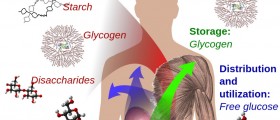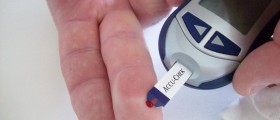
There are two types of diabetes, type 1 and type 2. The first type of diabetes manifests through lack of glucose in your cells due to the destruction of insulin-producing cells. The second type takes place when the cells in your body become immune to the insulin your body produces. Thus, in both cases, diabetes strikes once your body is not getting the insulin it needs, leading to excessive amounts of glucose in your blood and lack of glucose in other cells in your body.
Signs and Symptoms of Diabetes
Both diabetes type 1 and type 2 have similar symptoms. First of all, too much glucose in the blood is bound to trigger frequent urination. So, if you notice that you have been visiting the toilet more frequently than before, this might be a sign of diabetes. Since your kidneys cannot filter glucose back in the blood due to lack of insulin, they try to do the same with water, keeping the bladder full and forcing you to go to the bathroom often.
Since you are urinating this often, your body is losing quite some water. This can result in a strong sensation of thirst. So, dehydration usually strikes hand-in-hand with the frequent urination.
Diabetes type 1 usually manifests through one's inability to gain weight. Basically, the pancreas in a person's body stops creating insulin. This can happen due to a viral attack on the cells of this organ or because of an autoimmune response which leads to the destruction of insulin-producing cells. Since your body lacks energy while in this state, your body tries to compensate for it by burning down muscle tissue and energy. Taking into consideration that type 2 diabetes takes place more gradually, this symptom is not present in this variant.
Other Signs and Symptoms of Diabetes
When we do not have insulin in our body, we cannot transform glucose into energy. Thus, it runs throughout our blood with no effect whatsoever. Subsequently, our cells get deprived of energy, making us feel very tired and lacking strength. Hunger is quite common as well.
Neuropathy is yet another common symptom affecting the nervous system. Gradually, high glucose levels in your body damage the nerves, especially in your arms and legs. In diabetes type 2, this may happen too gradually, making patients go through this process without even witnessing the symptoms before the damage has already been done. Neuropathy manifests through tingling and numbness in hands, legs or feet.
Finally, some additional symptoms of diabetes which may manifest are blurred vision, dry or itchy skin and infections or wounds which take an abnormally long time to heal. All in all, if you notice any of these symptoms bothering you, or you happen to suffer from a combination of many of the above mentioned fits, seek medical assistance as soon as possible.

















Your thoughts on this
Loading...